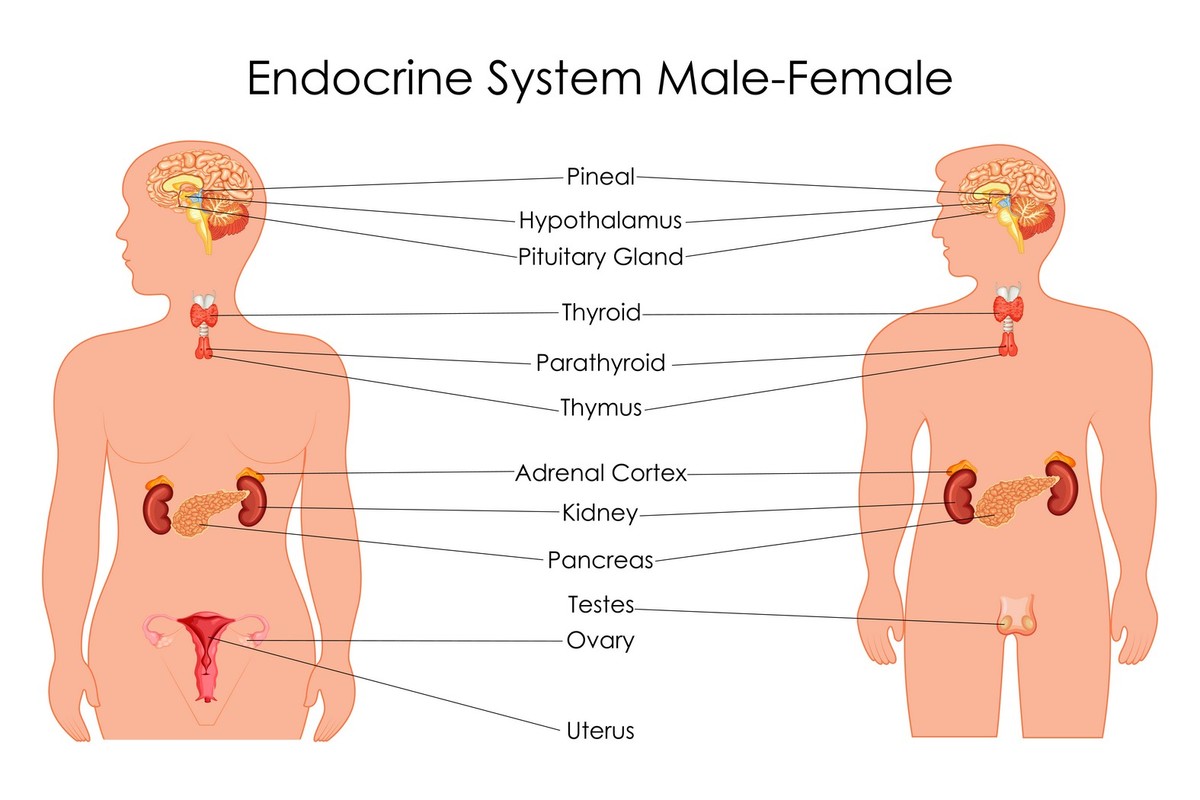11.1 Hormones and endocrine glands
The human body operates with the help of two control systems. The nervous system collects, processes, and responds to information using electrical signals, whereas the endocrine system regulates cells and organs through chemical substances called hormones. Together, the two systems control the functions of the human body.
The chemical substances secreted by the endocrine glands circulate through the body in blood. Endocrine glands are ductless glands that secrete their products, hormones, directly into the blood. There are about a dozen different endocrine glands in various parts of the body, many of which secrete several hormones. In addition, the liver and heart are also capable of producing hormones.
Hormones are chemical substances that affect the activity of another part of the body, known as the target site. In essence, hormones serve as messengers, controlling and coordinating activities throughout the body. They can speed up or slow down the functions of the organs. The effects of hormones are slow and long-lasting.
As the hormone levels in the body increase, the secretion of hormones gradually decreases due to negative feedback. This keeps your body in balance. If too much or too little hormone is secreted, the end result may be a hormone-related illness.
The location of the endocrine glands is shown in the diagram below. The pineal gland, which is not introduced separately in the text below, secretes melatonin into the blood. Melatonin is involved in controlling the circadian rhythm.
| Hormone and secretory body | Effect |
|---|---|
| melatonin, pineal gland | Regulates the sleep-wake rhythm. The secretion increases in the dark. Facilitates falling asleep, regulates circadian rhythms. |
| thymosin, thymus | Stimulates the maturation of T lymphocytes (white blood cells) (thymus). |
